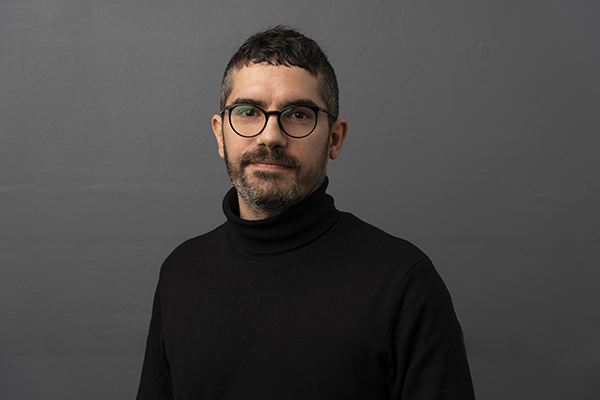Emmanouil Vasilomanolakis
Research leader

Project title
Loki: Situational aware collaborative bio-inspired cyber-deception
What is your project about?
Cyber-attacks are constantly increasing and can nowadays be seen in our everyday life. To cope with this, the cyber-security research has been growing a lot as a field with important work done in cryptography and network security. However, it is traditionally a passive field: from firewalls and antivirus programs to intrusion detection systems, defenders primarily protect computer networks by building sophisticated “walls”. This project, inspired by Norse mythology, with Loki being a shape-shifter god and a master of trickery, aims at redefining and evolving the emerging field of cyber-deception. Here, we attempt to deceive attackers by creating fake vulnerable systems that are aware of their surroundings and are constantly shifting. The project takes inspiration from nature (e.g., from the mimicry phenomenon) to synthesize sophisticated deception.
How did you become interested in your particular field of research?
I was first introduced to cyber-security during my BSc studies at the University of the Aegean (Greece) and became immediately intrigued by it. While many things have changed since then, I am still fascinated by the level of complexity that cyber-security, as a field, has. Today, it is evident that cyber-security cannot be seen merely as a technical field: if we don’t take an interdisciplinary approach (e.g., put effort into understanding how attackers behave and what motivates them, or understand the human response to specific cyber threats) cyber-security is unlikely to succeed.
What are the scientific challenges and perspectives in your project?
Much of the existing work on cyber-deception relies on creating rather basic systems to deceive attackers. However, recent research has shown that advanced attackers can identify and evade such deception via specialized attacks. With Loki, we want to rethink how cyber-deception is done by taking inspiration from nature as well as emerging fields (e.g., artificial intelligence). Moreover, the field of deception is lagging behind with regard to how one can properly evaluate such a method. Hence, we will develop a framework for the proper evaluation of such systems.
What is your estimate of the impact, which your project may have to society in the long term?
With cyber-attacks nowadays affecting our everyday lives, both at a working and personal level, there is a big need for novel cyber-defense mechanisms. Loki aims at significantly strengthening the emerging cyber-deception field by creating novel deceptive mechanisms. In the long term, such methods, and the lessons learned from them, can be incorporated into traditional security, thus significantly improving the overall threat detection accuracy. This can potentially assist in defending against all sorts of attacks: from critical infrastructure (especially old legacy systems) to commercial and even residential networks or from state-sponsored advanced persistent threats.
Which impact do you expect the Sapere Aude programme will have on your career as a researcher?
The Sapere Aude: DFF Starting Grant will allow me to really focus on my research for the upcoming years while also establishing collaborations with internationally recognized cyber-security researchers and institutions. I also see it as a recognition of my work so far; and needless to mention that my work would not be the same without all the amazing collaborators, students, and researchers. Lastly, this grant also puts me in the spotlight with regard to cyber deception and cyber security research, increasing my chances for securing other grants in the future.
Background and personal life
I was born and raised in Athens, but I have recently marked 10 years outside Greece (6 in Darmstadt, Germany and now 4+ in Copenhagen, Denmark). When I am not doing research, I enjoy spending quality time with friends, my plants, and my cat Luna. I am also very much interested in films, Krav Maga, sociology and politics.
View all research leaders here
Research institution
Technical University of Denmark
Research field
Cyber security
City of your current residence
Kongens Lyngby
High school
Filothei Public High School, Athens, Greece
